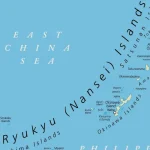Japan integrated economic security into its new National Security Strategy
On 16 December 2022, Japan’s Kishida administration approved three security documents: new National Security Strategy (NSS), National Defense Strategy, and Defense Buildup Program. The new National Security Strategy, inter alia, incorporated economic security, which the Kishida administration has placed importance on since its inception.
Here are my four takes:
1. The new NSS defines Japan’s economic security as “to ensure Japan’s national interests, such as peace, security, and economic prosperity, by carrying out economic measures.” Neither the Economic Security Promotion Act, passed by the Diet in May 2022, nor its “Basic Policy” , approved by the Cabinet in September, defined economic security. The definition of economic security in the National Security Strategy largely followed a definition recommended by the Liberal Democratic Party (LDP) in December 2020.
2. The approach towards economic security is generally based on existing directions, stipulated in the Economic Security Promotion Act. The National Security Strategy referred to measures related to supply chain resilience, critical infrastructure, and advanced critical technologies in order to improve Japan’s self-reliance and ensure its comparative advantage and indispensability. The Strategy also mentioned that Japanese governments should examine Japan’s own security clearance policy, which is expected to strengthen collaboration between government officials and private entities regarding classified information.
3. On cybersecurity, NSS adopted active cyber defense to improve Japan’s whole-of-government response capabilities. Japan’s National Center for Incident Readiness and Strategy for Cybersecurity (NISC) will be reorganized to a new agency to coordinate policies in the government. The active cyber defense targets the safety of government IT infrastructure and private “critical infrastructures.” This is directly related to ensuring the stable provision of critical infrastructure services, which is addressed in the Economic Security Promotion Act. Information on domestic telecommunications carriers is also necessary to detect servers that would launch cyber attacks on those infrastructures. Japanese government is required to integrate economic security policy and cybersecurity policy by developing appropriate legislations and strengthening cyber-related operations.
4. It is noteworthy that the NSS stresses technological capability as one of five components of “comprehensive national power,” which includes diplomatic capabilities, defense capabilities, economic capabilities, and intelligence capabilities. However, guidance on technological capabilities remained highly abstract, leaving issues for future implementation. Regarding technological capabilities, “multi-use” was put forward by an expert invited by Prime Minister Kishida to his “Advisory Panel to Comprehensively Discuss Defense Capabilities as National Strength” from September to November 2022. “Multi-use” refers to the versatility of technology, which can be used in a range of fields, including civilian, academic, disaster prevention, public safety, and security. In the past, technologies used in both the civilian and security sectors, i.e., dual-use technologies, have attracted and steered a debate in the civil-military dichotomy on the pros and cons of such technologies.
In the three documents, interestingly, the National Defense Strategy accepted the recommendation by the Advisory Panel and referred to “multi-use” technologies. On the other hand, the National Security Strategy, which is the supreme national security strategy, does not mention multi-use technologies, only describing that the results of research and development will be actively utilized in the security field. The Economic Security Promotion Office in the Cabinet Office has initiated funding program for critical multi-use technologies, such as unmanned aerial vehicles (UAVs), satellite communications, AI, quantum computing, robotics, advanced sensors, and biotechnology. Some outcomes from the government investment on economic security could contribute to Japan’s defense. The inclusive concept of multi-use should have been written into the top-level NSS. Policy integration is required in the future operation of the economic security-related funding and the enhancement of defense technology being promoted by the Ministry of Defense and the Self-Defense Forces.
Disclaimer: The views expressed in this commentary do not necessarily reflect those of the API, the Institute of Geoeconomics (IOG) or any other organizations to which the author belongs.


Senior Research Fellow
Yoshiyuki Sagara is a senior research fellow at the Asia Pacific Initiative (API), where he focuses on economic security, sanctions, health security policy including COVID-19 response, international conflicts, and Japan’s foreign policy. Before joining API in 2020, Mr. Sagara had 15 years of career experience working in the United Nations system and the Japanese government, as well as in the tech industry. From 2018 to 2020, he served as Assistant Director of the Second Northeast Asia Division (North Korea desk) at the Ministry of Foreign Affairs of Japan. From 2015 to 2018, he served in the Guidance and Learning Unit within the Policy and Mediation Division of the UN Department of Political Affairs in New York, where he analyzed and disseminated best practices and lessons learned from UN preventive diplomacy and political engagements, such as in Nigeria, Iraq, and Afghanistan. From 2013 to 2015, he served in the International Organization for Migration Sudan, based in Khartoum. As a project development and reporting officer in the Chief of Mission’s Office, he developed and implemented peacebuilding and social cohesion projects in conflict-affected areas of Sudan, especially Darfur. While serving in the Japan International Cooperation Agency (JICA) Headquarters from 2012 to 2013, he managed rural and fishery development projects in Latin America and the Caribbean region. From 2005 to 2011, he worked at DeNA Co., Ltd. in Tokyo and engaged in expanding tech businesses. Mr. Sagara has been widely published and spoke on public policy, including in the Japan Times. He coauthored a report, The Independent Investigation Commission on the Japanese Government’s Response to COVID-19 (API/ICJC): Report on Best Practices and Lessons Learned (Discover 21, 2021). He holds a Master of Public Policy from the Graduate School of Public Policy at the University of Tokyo, and a BA in law from Keio University.
View Profile-
 DOGE Shock and Crisis in U.S. Credibility2025.07.14
DOGE Shock and Crisis in U.S. Credibility2025.07.14 -
 India’s Strategic Autonomy in a Trumpian World2025.07.11
India’s Strategic Autonomy in a Trumpian World2025.07.11 -
 Air superiority vs. air denial: Redefining U.S. airpower strategy2025.07.09
Air superiority vs. air denial: Redefining U.S. airpower strategy2025.07.09 -
 The Lessons of the Nippon Steel Saga2025.07.08
The Lessons of the Nippon Steel Saga2025.07.08 -
 Unchecked and unbalanced: The future of U.S. economic policymaking2025.07.07
Unchecked and unbalanced: The future of U.S. economic policymaking2025.07.07
 The Lessons of the Nippon Steel Saga2025.07.08
The Lessons of the Nippon Steel Saga2025.07.08 From dollar hegemony to currency multipolarity?2025.06.25
From dollar hegemony to currency multipolarity?2025.06.25 India’s Strategic Autonomy in a Trumpian World2025.07.11
India’s Strategic Autonomy in a Trumpian World2025.07.11 The Big Continuity in Trump’s International Economic Policy2025.06.11
The Big Continuity in Trump’s International Economic Policy2025.06.11 The Tyranny of Geography: Okinawa in the era of great power competition2024.02.09
The Tyranny of Geography: Okinawa in the era of great power competition2024.02.09













